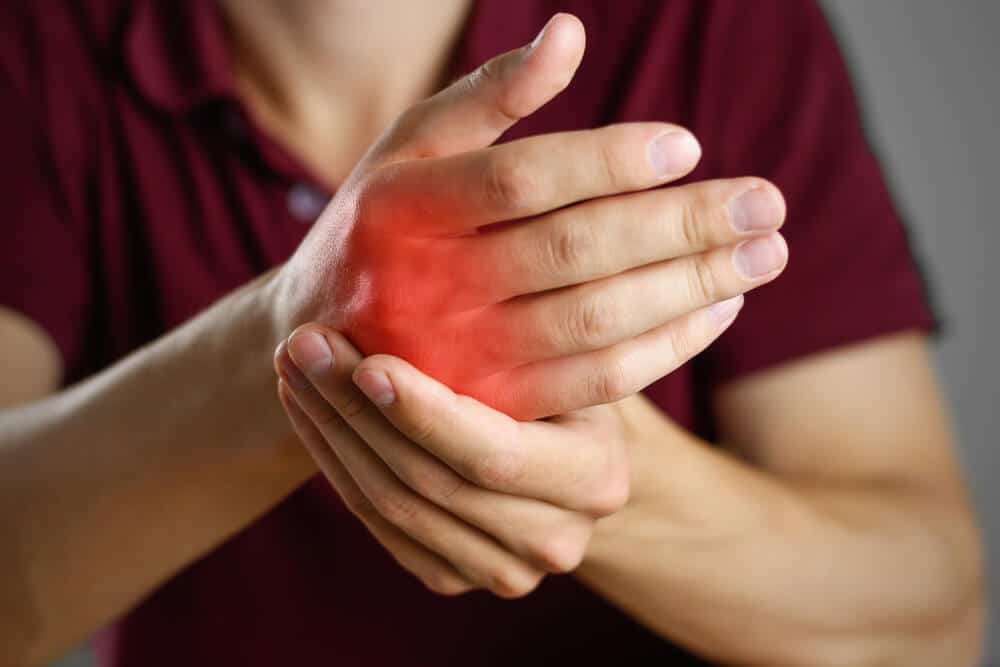
Did you hurt your knuckle? Do you break it? A broken knuckle will be very painful and if not treated correctly can affect future use of your hand.What Causes a Broken Knuckle?
According to Dr. Jeffrey E. Budoff, a Hand Surgeon in Houston, medical professionals refer to a broken knuckle as “boxer’s fracture” or “brawler’s fracture”. We can assume that the first cause of a knuckle fracture is from a fist fight of some sort. This happens more often with inexperienced fighters. Those with more training know the proper techniques to not break bones.
There are also other causes such as:
- With a closed fist, hitting a hard object such as a wall
- Hitting your hand when falling
- Dropping a heavy object on your hand
- Car accident
How Can I Tell if My Knuckle Is Broken?
According to WIkiHow, a bruise or a small fracture may not need medical attention. However, if the fracture is severe, it is very important to get it checked out by a doctor.
The knuckle that will most often get fractured is on the index finger. You need to look at many things when trying to assess whether you broke your knuckle or not.
- Did it pop? When you first hurt your knuckle, you may have felt a pop or a snap in your hand. This sound or feeling can be the bone breaking or dislocating. You may or may not hear this, but if you do it is important to stop what you are doing to examine it.
- Does it hurt? If you broke your knuckle, the pain will come right away, and it will be excruciating. The immediate pain is a sharp pain followed by a pulsating feeling. If the pain isn’t that severe, it could still be a minor fracture. This still requires your attention because you don’t want to damage it further.
- Is your hand hot? As soon as you break your knuckle, the blood flows to the injury and you will feel your hand getting warmer. You will see a significant difference compared to your other hand.
- Is it swollen? You will now want to visually inspect your knuckle. In the first 10 minutes following the injury, it will start to swell. Your hand will get quite big if it’s broken, and you may have trouble moving it.
- Is there a bruise? Often, a bruise takes a little while to appear, but if you break your knuckle it appears within minutes. In rare cases, there is no bruising.
- Is your knuckle sunk in? If you can form a fist with your hand, your broken knuckle may be lower than your other knuckle. This is because the fracture has moved the bone.
- Is the bone sticking out? If you can see the bone sticking out, you will need surgery to fix it. Look for open wounds on your hand and examine them for bone sticking out.
- Can you move your fingers? If you can’t bend your finger at all, it may be dislocated. If it is, it will take longer to heal than a regular broken knuckle.
- Is your finger facing the right way? It is possible that you can move your finger, but it is not facing the right way. If so, this means it is malrotated, and will also take more time to heal.
- Can you make a fist? The extent of the injury can be measured by how difficult it is to make a fist. Don’t try too hard to make a fist if it is difficult, you could just make it worst. Gripping something will also be hard to do if your knuckle is broken.
- Does your wrist hurt? The knuckle bone connects to the wrist bone, if you break your knuckle, moving your wrist can be painful.
How to Treat a Broken Knuckle?
Depending on how bad of a break it is, there are things you can do at home without seeking medical attention.
- Clean the cuts and scratches you may have around your injury
- Elevate your hand above your heart, this can be done sitting or standing
- Put ice on it. It may hurt at first, but will help with the swelling
- Make a print by using something hard between the injured finger and the one next to it and securing it with tape
A broken knuckle can be very serious. If it is not treated appropriately, it can cause irreversible damage. If you think you need to see a medical professional after making the assessment, it is very important to do so.
